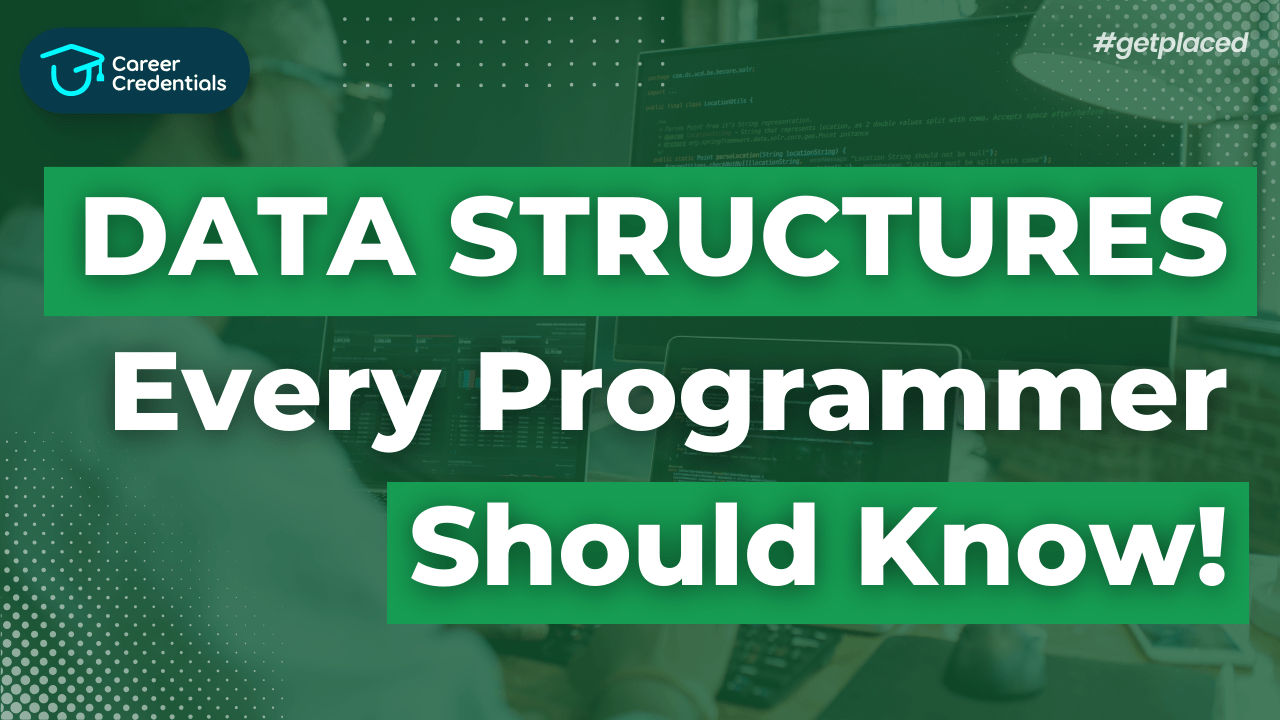Data Structures: Every Programmer Should Know

The unsung heroes of the programming world, data structures are the building blocks that hold your programs together. They determine how efficiently you can store and manipulate information, ultimately impacting your program's performance. So, whether you're a seasoned coder or just starting out, understanding data structures is a must!
What are Data Structures?
Imagine a library. Books are data, and the shelves are data structures. Just like a well-organized library allows you to find books quickly, efficient data structures ensure smooth retrieval and manipulation of information in your programs.
Data structures define how data is organized in computer memory. They specify not just the data itself, but also the relationships between different pieces of data and the operations (adding, removing, searching) that can be performed on them.
Why are Data Structures Important?
Using the right data structure for the job is crucial for several reasons:
- Efficiency: Different data structures excel at different tasks. Choosing the right one can significantly impact how fast your program runs. For instance, searching a sorted array is much faster than searching an unsorted list.
- Memory Management: Data structures help optimize memory usage. By understanding how data is stored, you can avoid wasting precious memory resources.
- Problem-Solving: Data structures are fundamental tools for solving programming problems. They provide a foundation for designing algorithms, which are step-by-step instructions for solving a particular problem.
Common Data Structures:
The programming world boasts a rich arsenal of data structures, each with its strengths and weaknesses. Here's a glimpse into some popular ones:
- Arrays: A fixed-size collection of elements, all of the same data type. Think of them as rows in a spreadsheet, where each row holds similar data. Arrays offer efficient random access, meaning you can jump directly to any element.
- Linked Lists: A flexible data structure where elements are not stored contiguously in memory. Instead, each element points to the next one in the list, forming a chain. Linked lists are great for dynamic data (data that changes size frequently) as you can easily insert or remove elements without affecting the entire structure.
- Stacks: Think of a stack of plates. You can only add or remove plates from the top. Stacks follow the LIFO (Last In, First Out) principle, making them ideal for implementing undo/redo functionality or keeping track of function calls.
- Queues: Imagine a line at a coffee shop. People are served in the order they joined (FIFO - First In, First Out). Queues are perfect for processing tasks on a waitlist or simulating real-world queues.
- Trees: Hierarchical data structures that resemble a tree. Elements (nodes) are connected with parent-child relationships. Trees are powerful for organizing sorted data and implementing efficient searching algorithms.
Must Watch: Most Commonly Asked Java Interview Questions by Dr. Amar Panchal
Why Data Structures are Crucial for Your Job
In today's tech landscape, a strong understanding of data structures is practically a prerequisite for landing your dream coding job. Here's why:
Must Read: Must know Tips to Crack any interview by career Credentials
- Technical Interviews: Many companies heavily rely on technical interviews to assess a candidate's programming skills. These interviews often involve solving coding problems that require applying specific data structures and algorithms. A good grasp of data structures will make you a strong contender in the interview process.
- Problem-Solving Skills: Data structures are not just about memorizing different types. They teach you how to approach problems strategically. By understanding how data structures work, you'll be better equipped to analyze problems, design efficient solutions, and write clean, maintainable code.
- Efficiency Matters: In the real world of software development, efficiency is king. Choosing the right data structure ensures your code runs smoothly and uses resources effectively. This is critical for building scalable applications that can handle large amounts of data.
Check out 100 Most Asked Python QnA by Career Credentials for FREE!
Confused About Your Career?
Don't let another opportunity pass you by. Invest in yourself and your future today! Click the button below to schedule a consultation and take the first step towards achieving your career goals.
Our team is ready to guide you on the best credentialing options for your aspirations. Let's build a brighter future together!
Empower Yourself. Elevate Your Career at Career Credentials Where Education meets Ambition.

